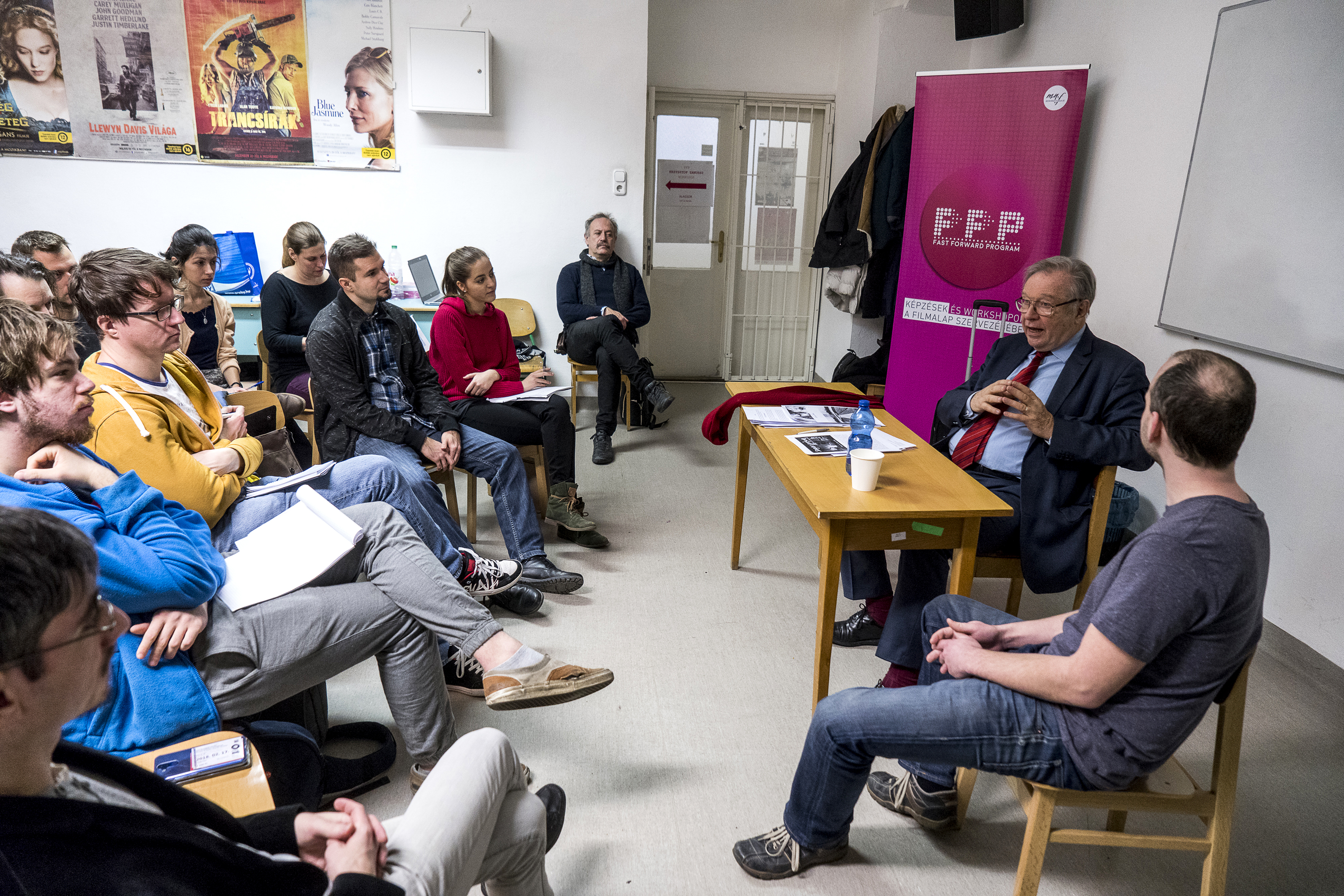Ready, Set, Fast Forward
Hungarian cinema has had a very successful run with award-winning films and national box office hits. However, these results can only be maintained if the next generations get the chance to refine their skills and obtain up-to-date knowledge.
In September 2017 the Hungarian National Film Fund introduced the Fast Forward Program (FFP), an innovative series of free, practice-oriented workshops and open lectures to help junior industry professionals and film students keep up with demand.
Beyond traditional film school curricula and internship opportunities there is a growing need for specialised knowledge to help film professionals develop new skills, learn about self-promotion and encourage lifelong learning within the industry. For example, the craft of scriptwriting is the core element of all film courses – but are screenwriters prepared to deliver a “killer pitch” at forums to market their projects? The comprehensive skills and knowledge off ered by FFP trainings make our film professionals more creative and resilient.
The trainings are led by well-known professionals who provide up-to-date and realistic insight into the industry as well as an informal networking opportunity.
The open lectures are off ered to a wider audience and also welcome aspiring amateurs and students; however, the workshops are intensive, practiceoriented learning opportunities for a smaller group of people who are already at a particular level in the given topic. In these workshops participants receive a more personalised learning experience that often includes one-on-one mentoring or consultation.

Acting for and with the Camera
Here is a short overview of some of the highlights from the 2017/2018 Fast Forward Program.
What does Hollywood Require from a Script Supervisor?
A continuity supervisor could easily be described as the glue that holds the filmmaking process together. Carmen Tabányi has been working in the United States for 15 years. She showed the magic tricks of script supervisors in two 6-day workshops that took place at the Film Archive. Script supervising was also supported by the fund’s training scheme.
Zanussi’s Cinema: Masterclass on Film Directing
Learning from living cinema legends can be a defining moment for any film student, and for many having the opportunity to listen to Krzysztof Zanussi undoubtedly represented precisely that. In his lecture hosted by the Polish Institute, Zanussi shared his views on narrative art in a postmodern world before consulting with young filmmakers and reviewing their film projects and plans.
The Art of Pitching
Presenting a project in an impressive way while retaining the essence of the idea and being consistent with one’s own personality at the same time – that is the art of pitching according to Sibylle Kurz. The skills required for selling an idea were the focus of her lecture, which drew on her experience of working with EAVE, SOFA and the Forum section of Berlinale. Participants of the Incubator Program were lucky to continue working with Sibylle Kurz in a special pitching workshop.
How to Make a Good Low-Budget Film
Katriel Schory, the executive director of the Israeli Film Fund, has worked on more than 230 feature films. In his inspirational speech he offered insight into the magic of producing low-budget films.
1.5 Hours in 60 Seconds
Creating eff ective trailers and promos is great fun. Especially when the director and editor Steven Lovy shows you how. During his 3-day workshop participants learned how to compress the essence of a fi lm into a single minute, to get the rhythm right and to use editing and graphics software.
Acting for and with the Camera
Mexican-American actress and director Yareli Arizmendi’s workshop offered a space for actors to discover working with the camera and to learn how to control their performances in this specific medium. Theory and practice revolved around hitting the mark, finding light and eyeline, managing energy and becoming familiar with different angles and lenses.
The FFP’s pilot year continues with more exciting events and, for those who missed the lectures, video recordings can be accessed online.

More on Education and Training
- To alleviate the shortage and increase the competitiveness of local film production, a complex initiative called the Film Training Program was launched by the Film Fund in 2016. The legal and financial foundation of the programme was outlined in the Motion Picture Act in 2016, according to which productions receiving indirect financial support in Hungary are to contribute to the film training fund. The act imposes a 0.5% levy and also obliges productions over EUR 32,000 to employ interns.
- Filmesgyakornok.hu is the Film Fund’s website, channelling students and newcomers into the internships of running film productions. The site lists productions with available placements and provides news and information about the film industry and educational opportunities. Producers can access a database of potential applicants by exploring their educational background and professional experience.
Ádám Harangozó
